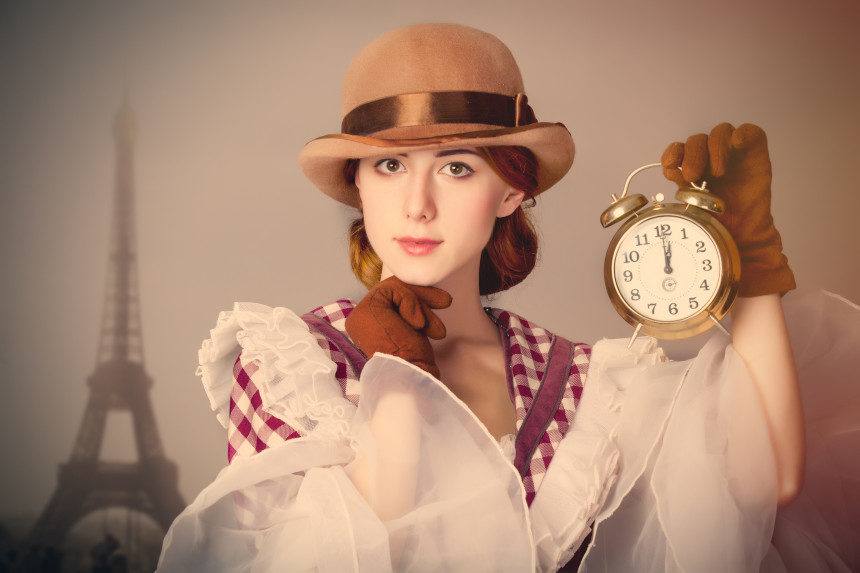Managing editor and logophile Andy Hollandbeck reveals the sometimes surprising roots of common English words and phrases. Remember: Etymology tells us where a word comes from, but not what it means today.
In ancient Greece, it was called a horologion. In ancient Rome, horologium. Both are a long cry from the simple, single-syllable word we use today: clock. Though clock does come to English from Latin, it isn’t related to these old words for a timepiece (unlike our word hour). And clock wasn’t a common name in English until the 14th century.
When people thought of mechanical timekeeping devices in those pre-literate days, the first thought often wasn’t of a round face with different-sized arms to indicate the time, but of the bell that rang the hour (and in some cases the quarter-hours as well). In Medieval Latin, “bell” was clocca, a word that dates back not to ancient Rome but only to the 7th century. Clocca was probably adopted into Church Latin from Celtic (“bell” in Old Irish was clocc) via Irish missionaries.
Clocca became the Middle Dutch klocke, and that’s probably the route it took into English. In its earliest sense, a clock was the bell that tolled the hour, but then it evolved to refer to the ringing of that bell and eventually to the device itself that kept the time.
If you’ve ever taken a hit to the noggin, you might say that you got “clocked in the head” or that you “got your bell rung” — two idioms that not only mean the same thing but are etymologically related.
But clocca didn’t sneak into English only through Dutch, or only through horology (clock-making). In France, the Medieval Latin word for “bell” became both cloche and, in one Old French dialect, cloke or cloque. These words both found their way into fashion as the names of bell-shaped garments. The former first became the name of a bell-shaped jar and then, by the beginning of the 20th century, the bell-shaped cloche hat that was popular among women during the Roaring Twenties. The latter became (in the late 13th century) the English word cloak, the sleeveless traveler’s cape that, when worn, takes on a somewhat bell-shaped form.
Featured image: Masson / Shutterstock
Become a Saturday Evening Post member and enjoy unlimited access. Subscribe now




Comments
This is pretty fascinating. I was thinking in the first paragraph if ‘horo’ part of ‘horologium’ had connections to horoscope. The latter has connections to time in an indirect sense. The Medieval Latin word for bell became cloche, then the French cloke or cloque.
Without a single doubt, the cloche hat that was THE hat of ‘The Roaring Twenties’ was also one of the sexiest hats of all time for women. Ironically just last weekend (days before this feature appeared) I bought my girlfriend a beautiful, brand new, surprise cloche hat on ebay. It should arrive this week. She’s going to LOVE it, Andy!
We’re both big fans of the Twenties to mid-Sixties style. Then it skips ahead to the ’80s but stops there, of course.